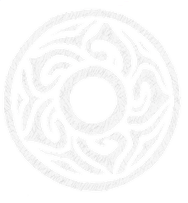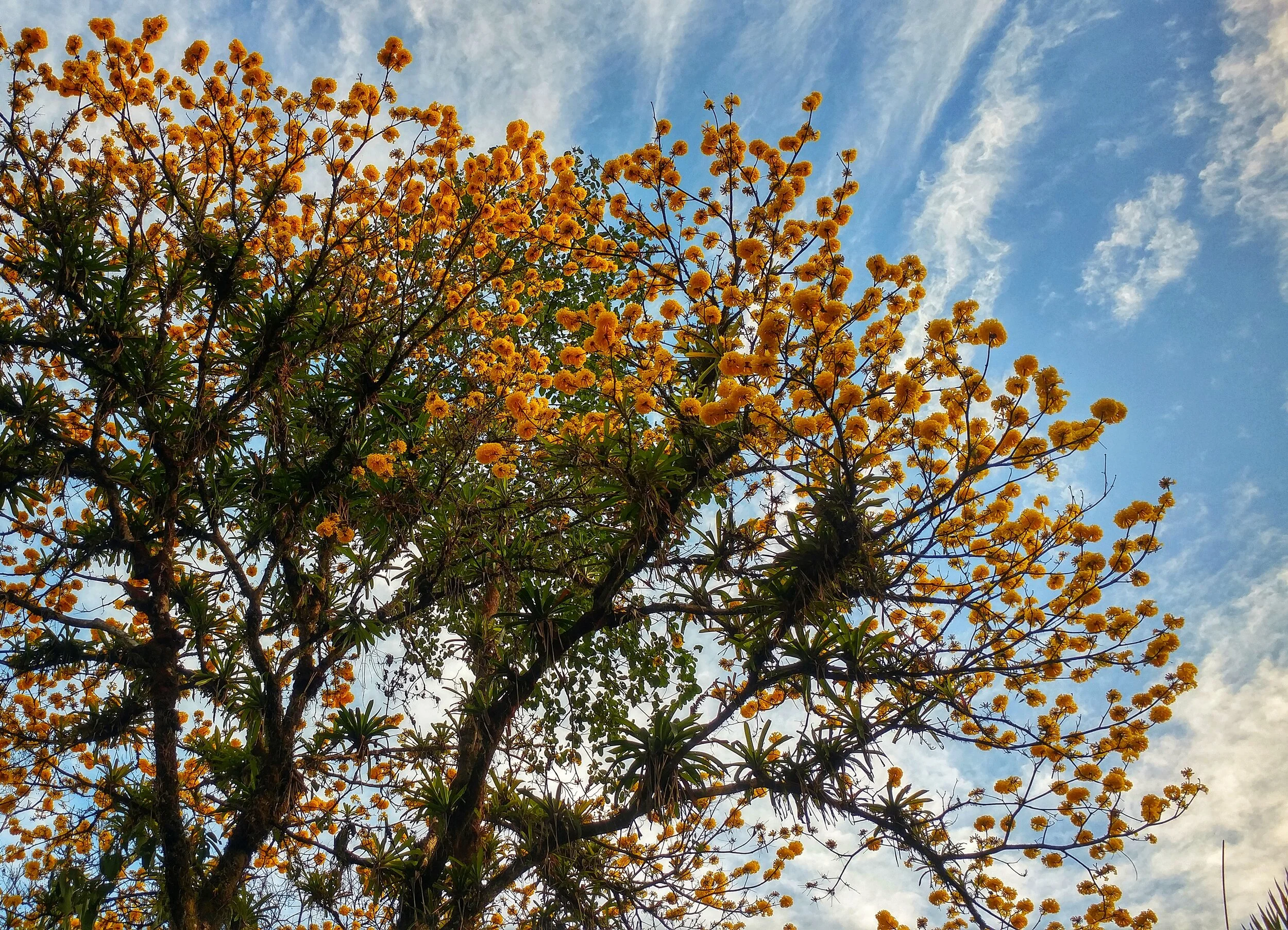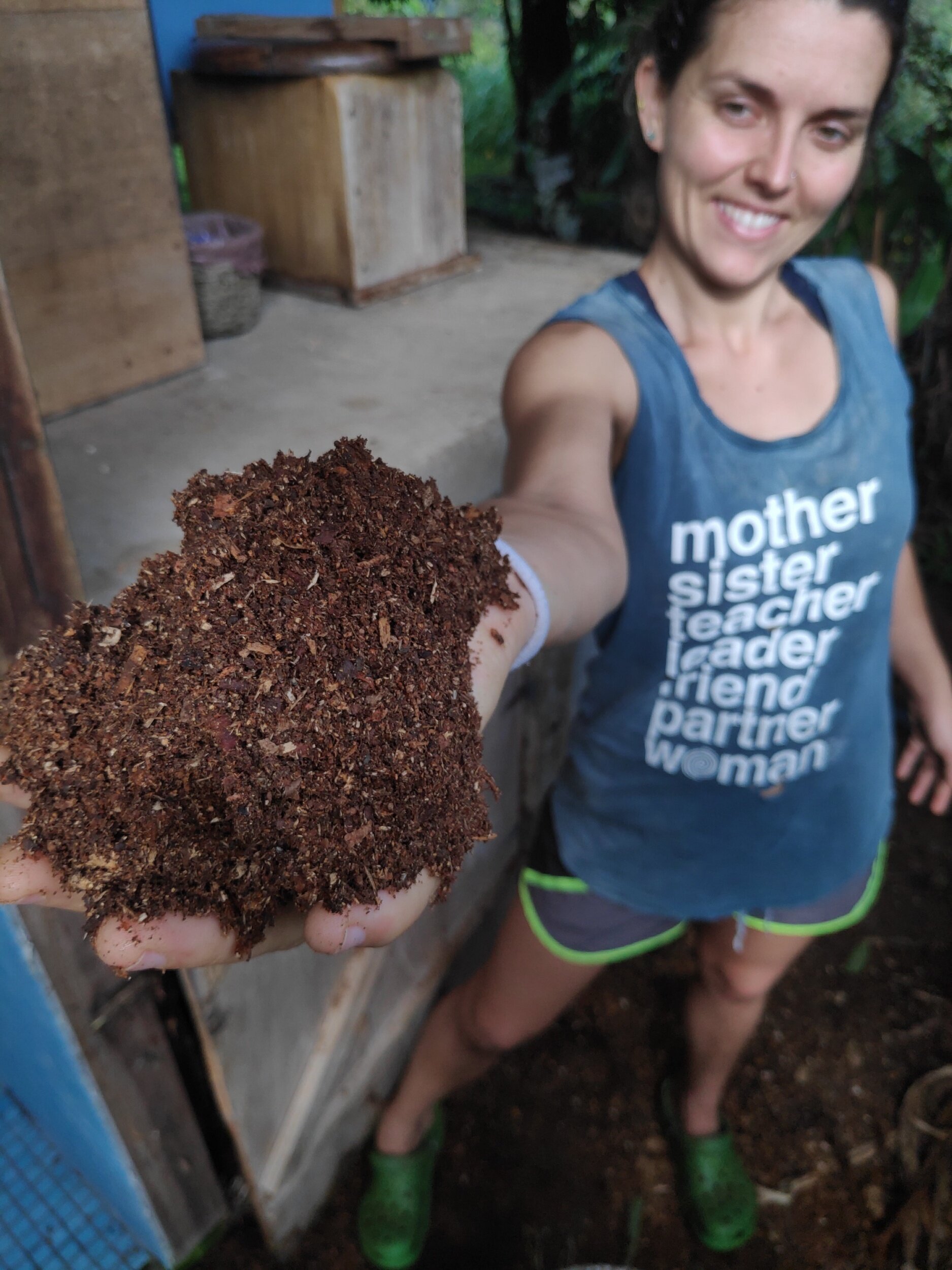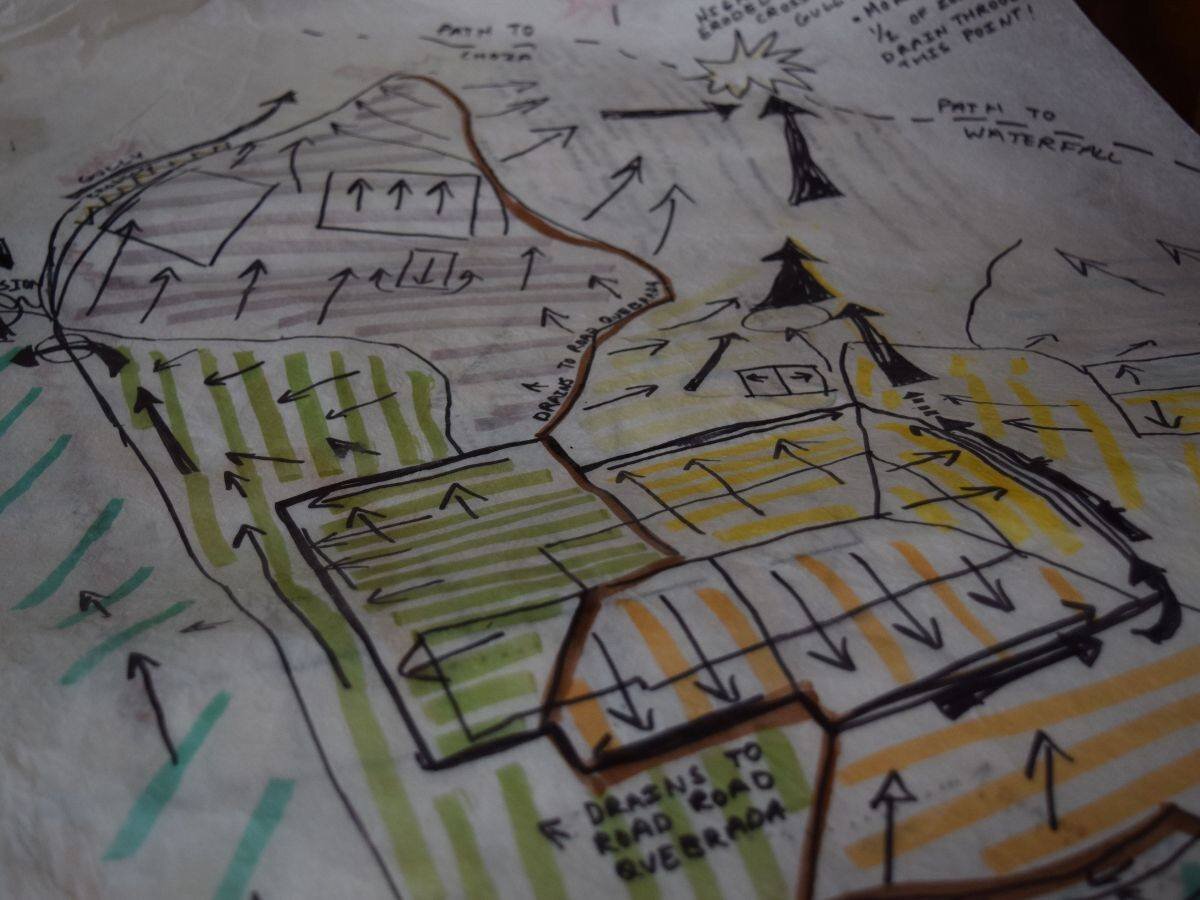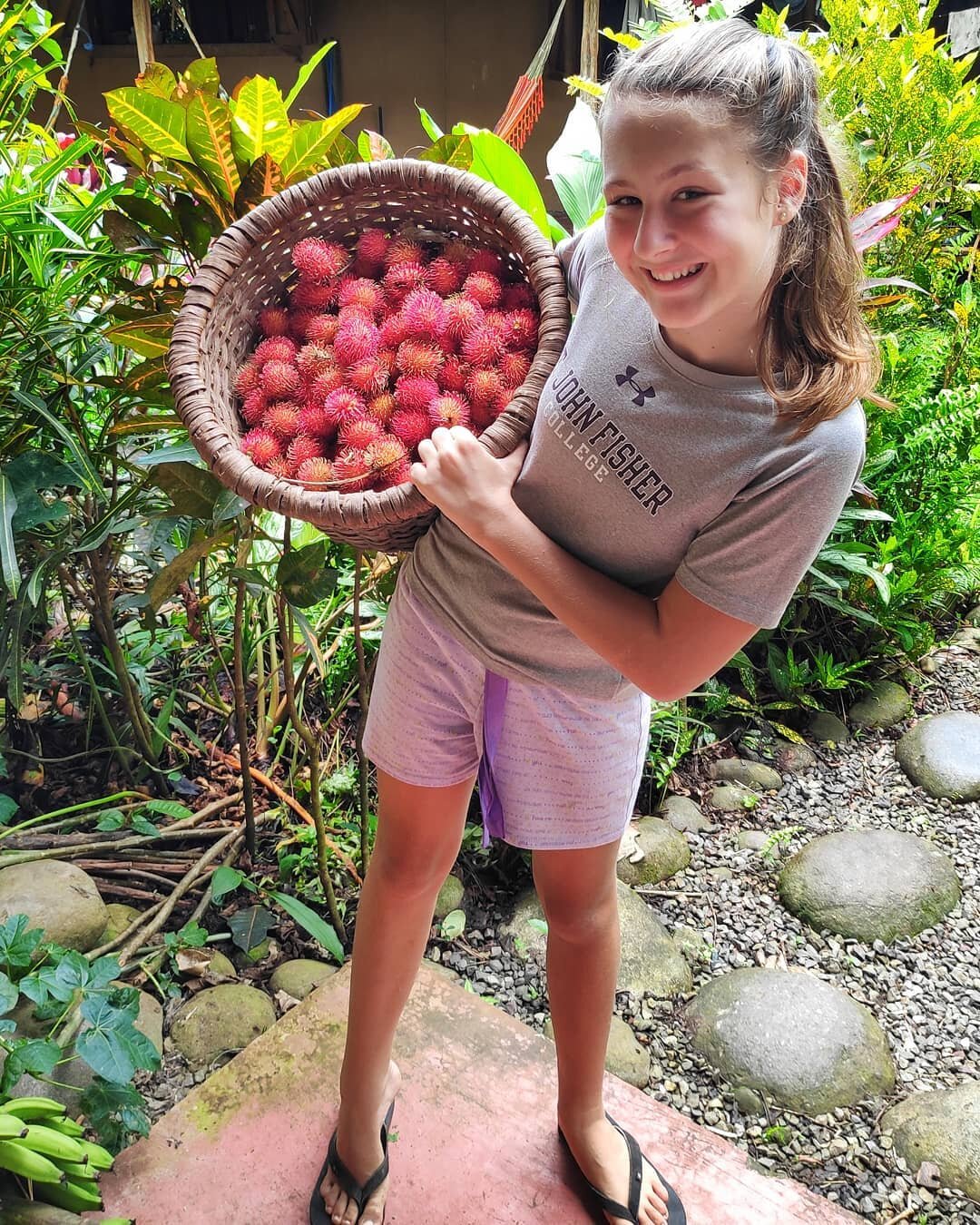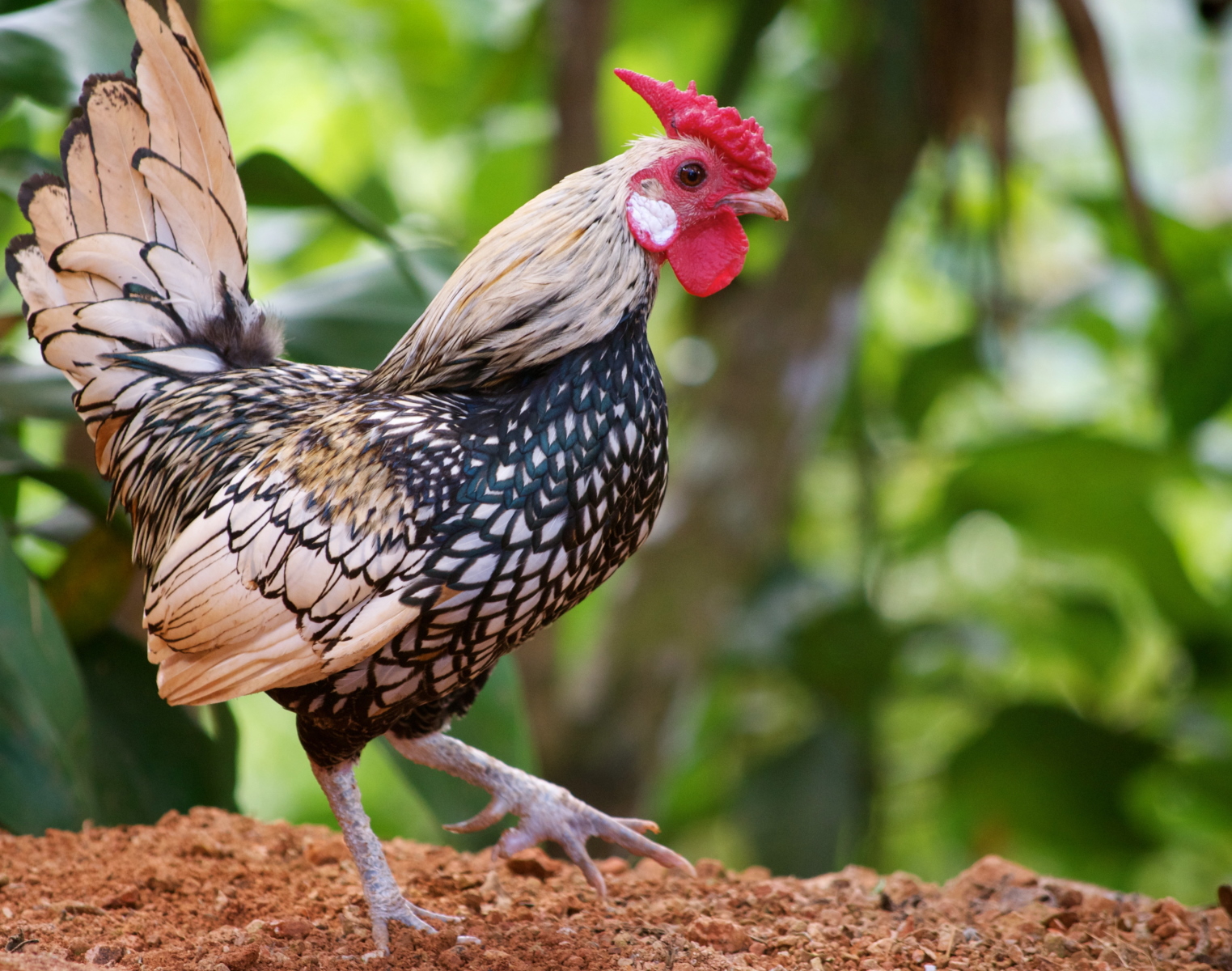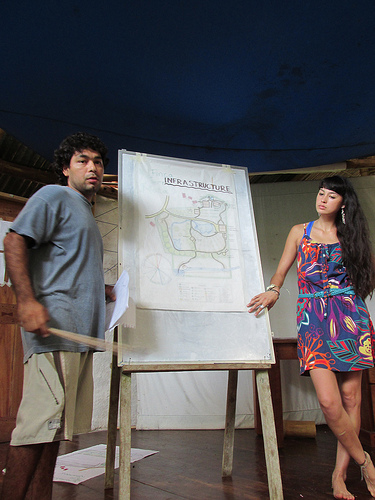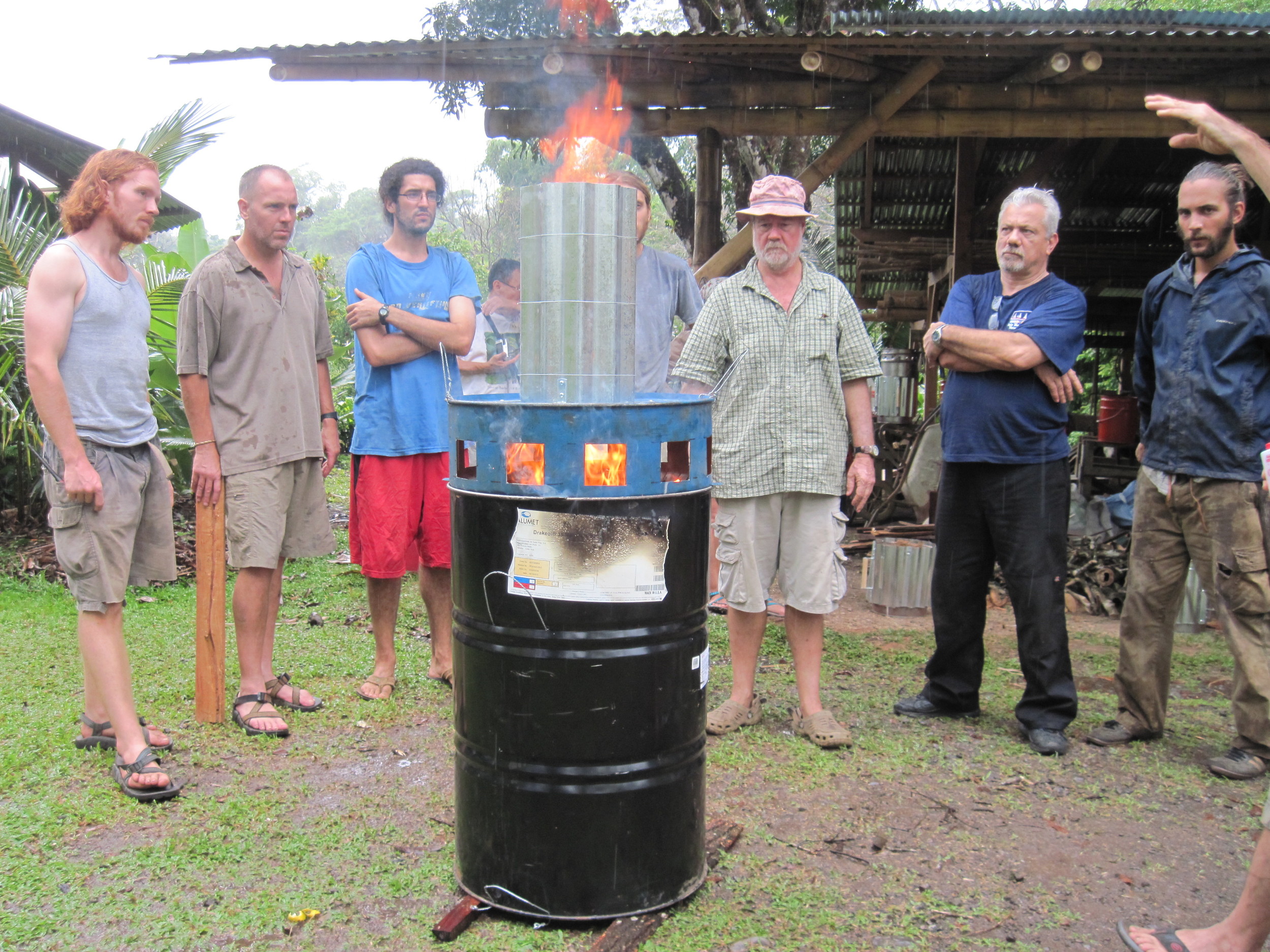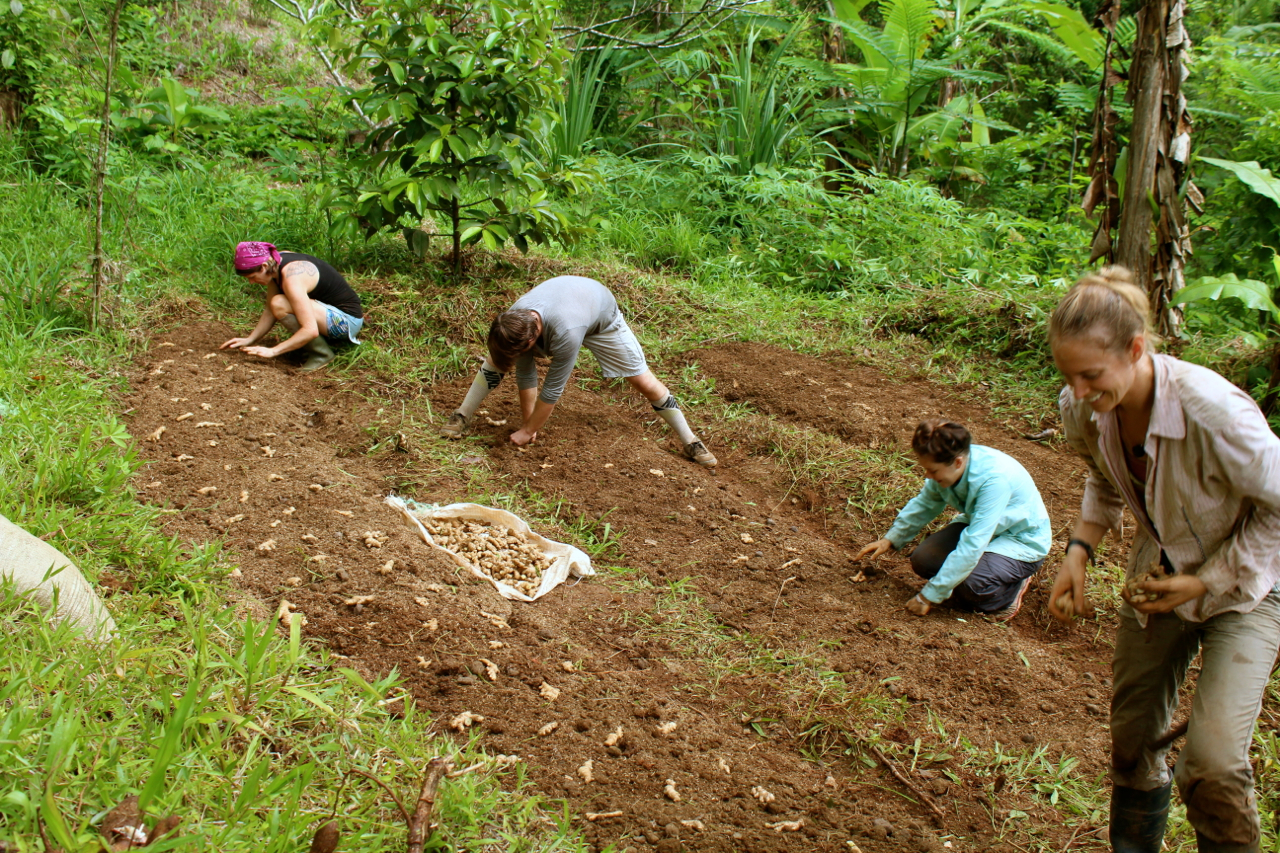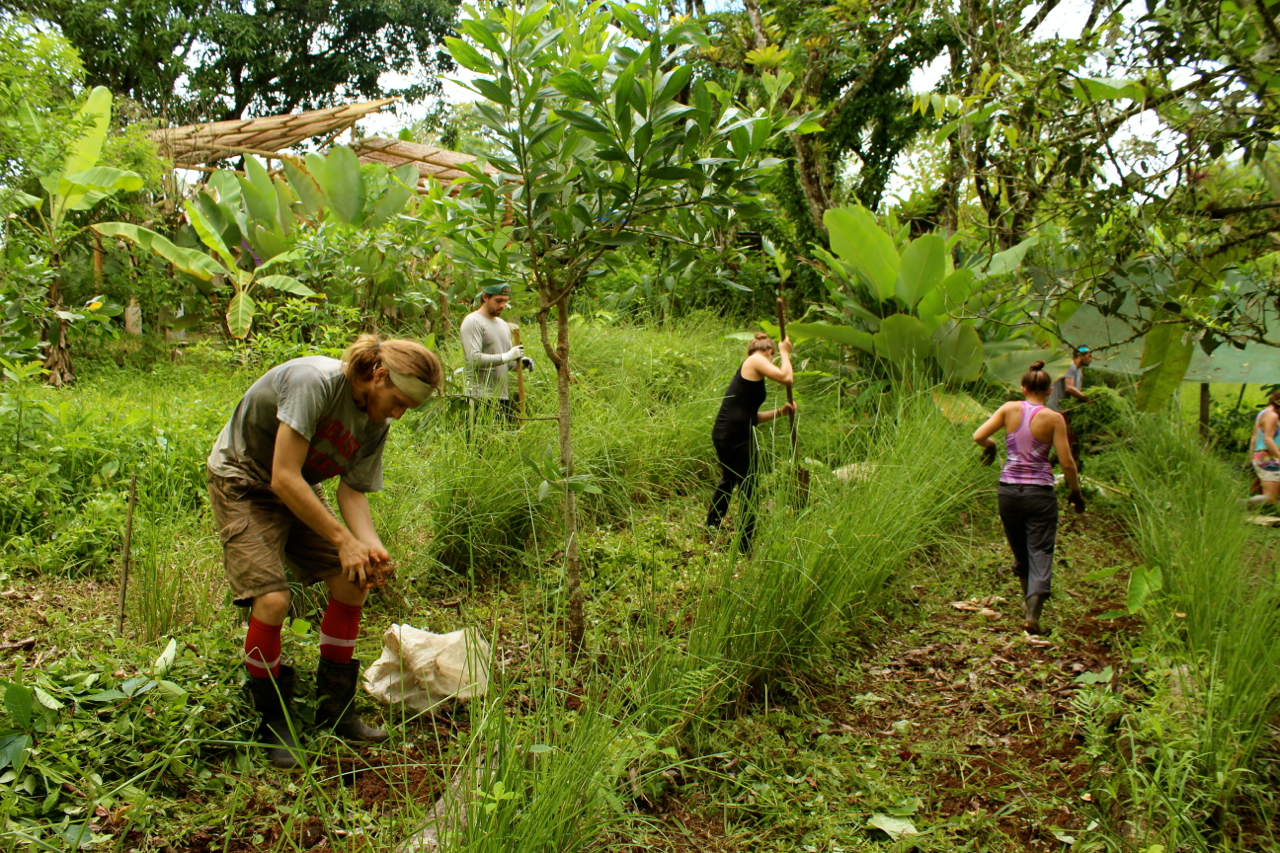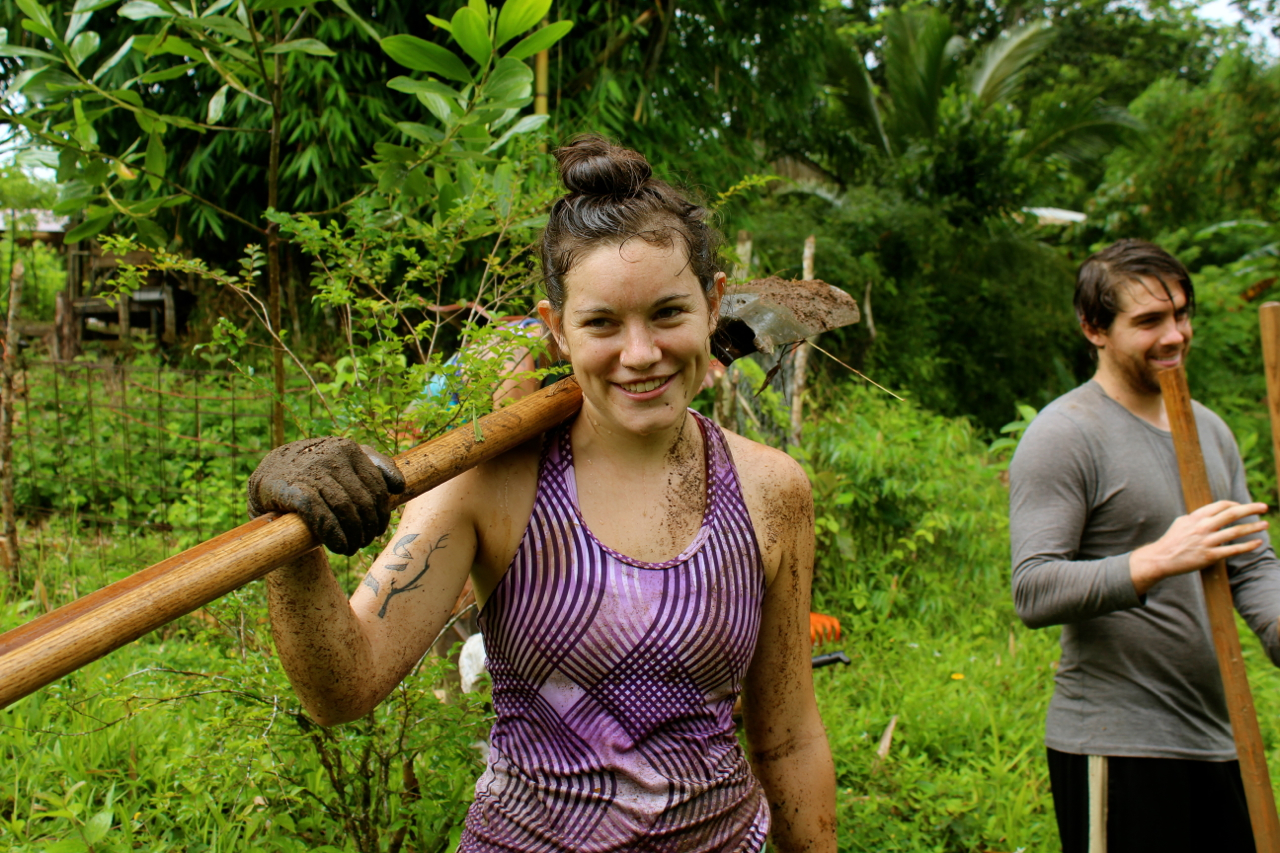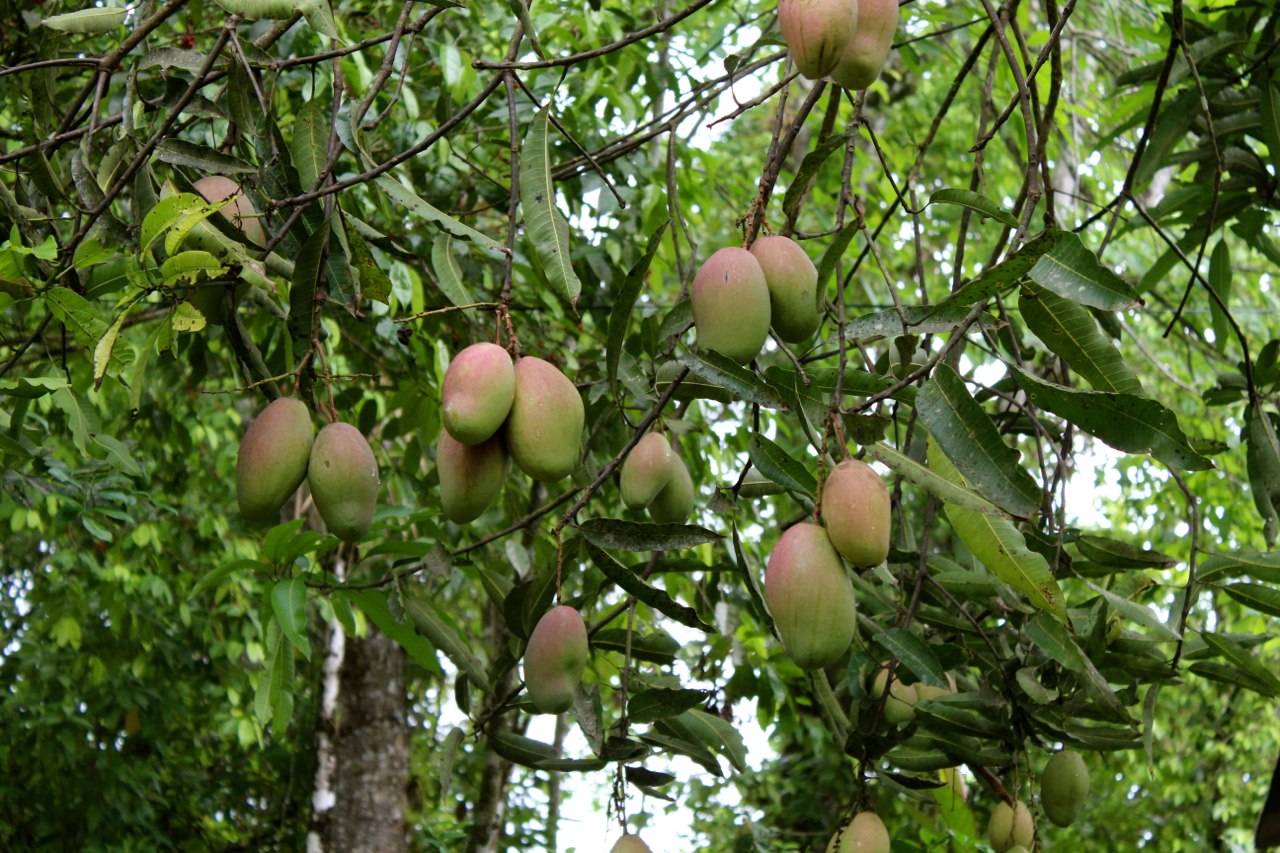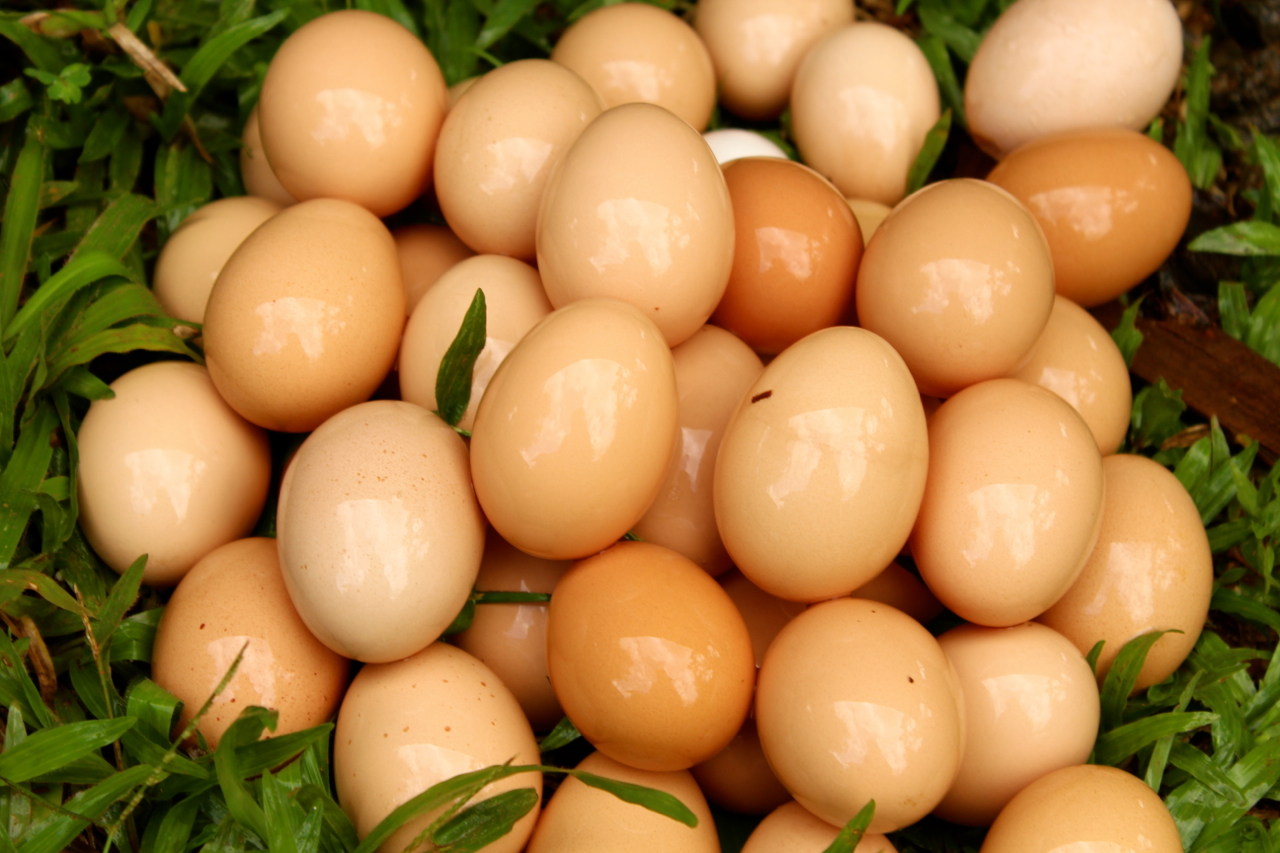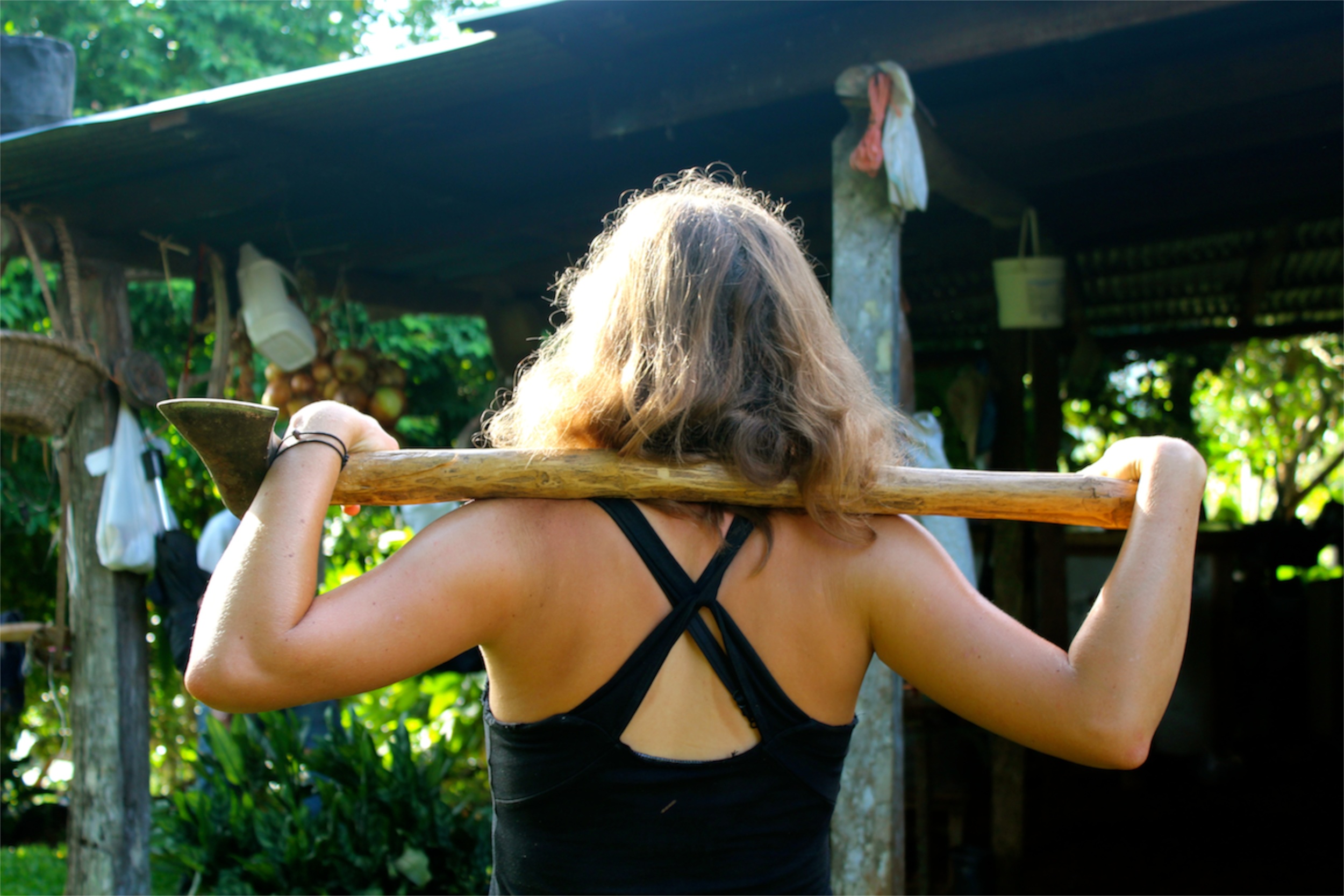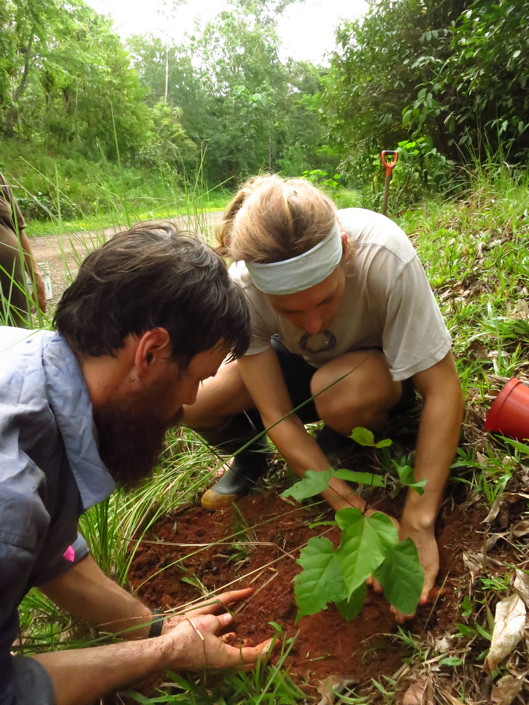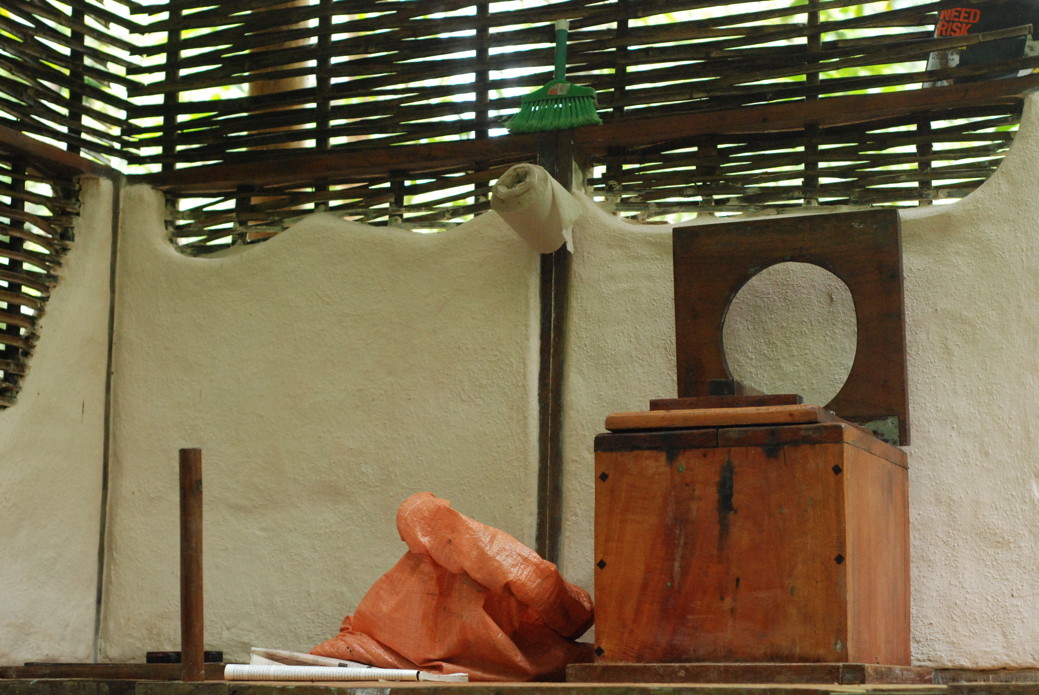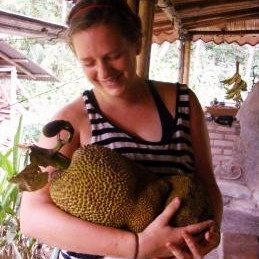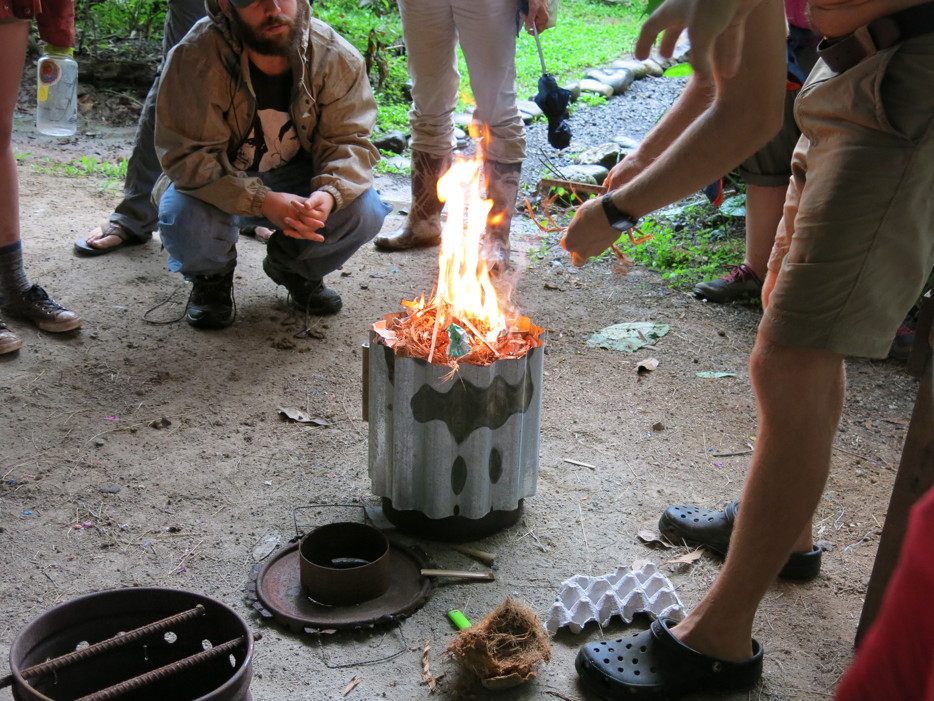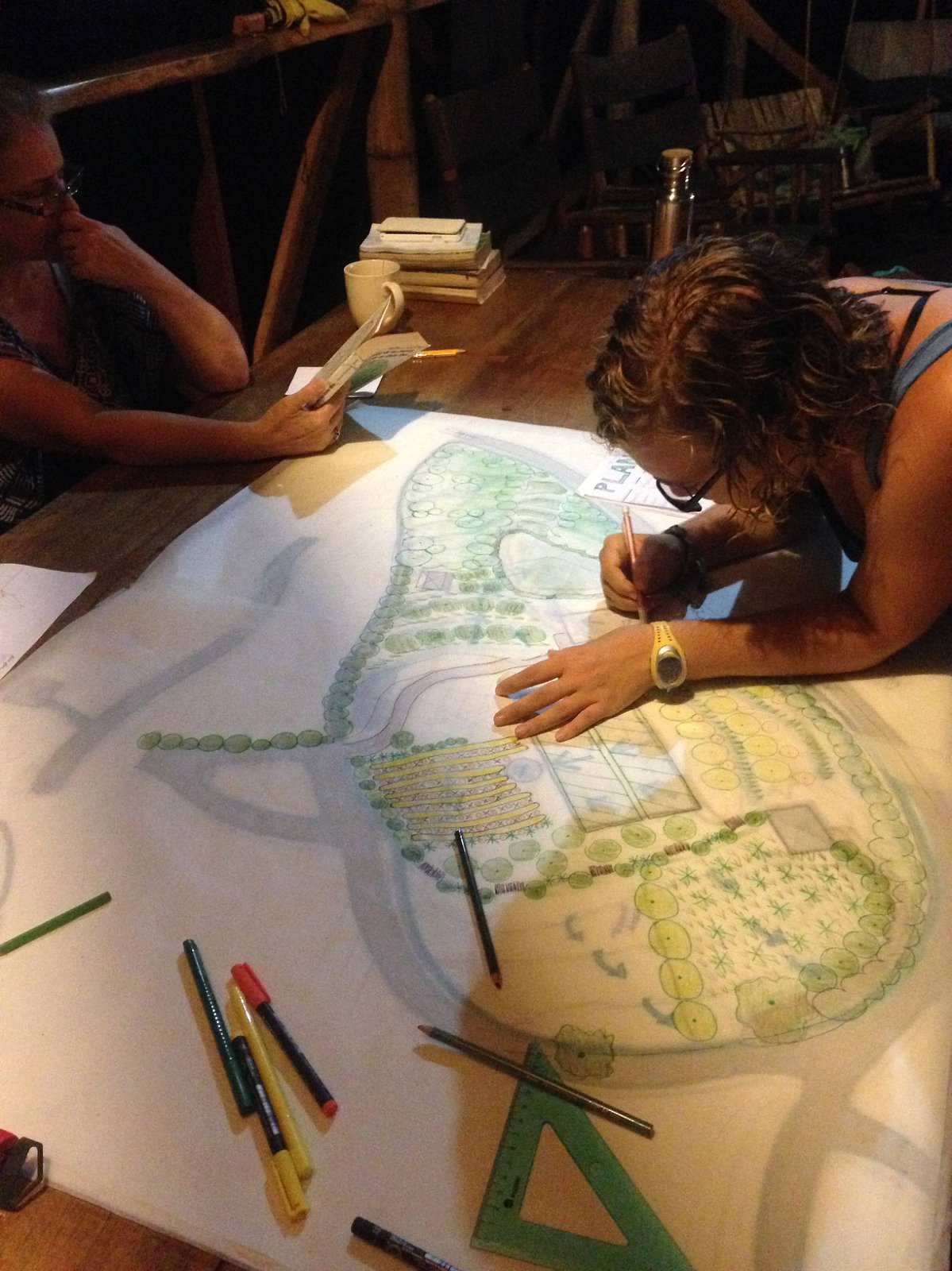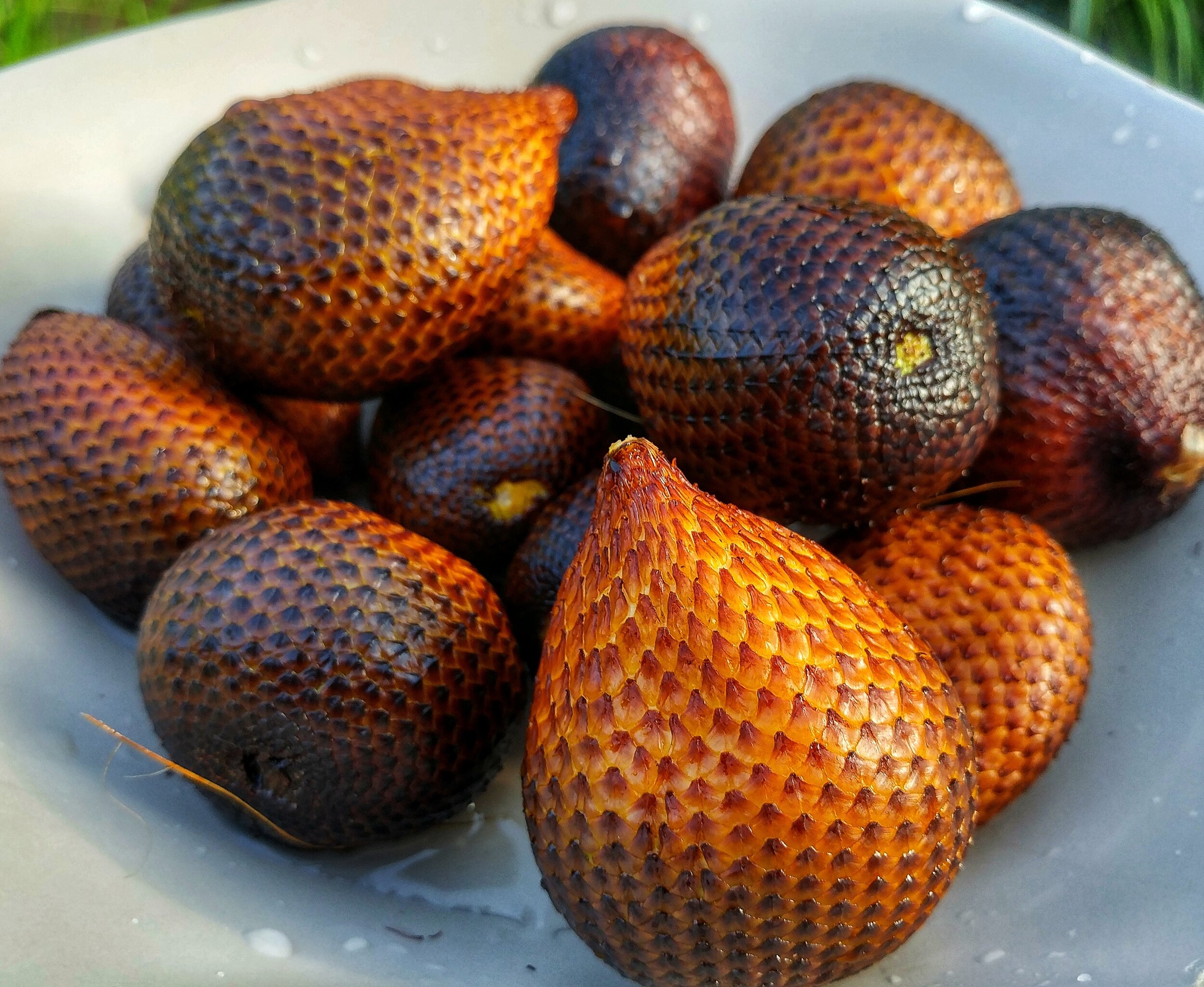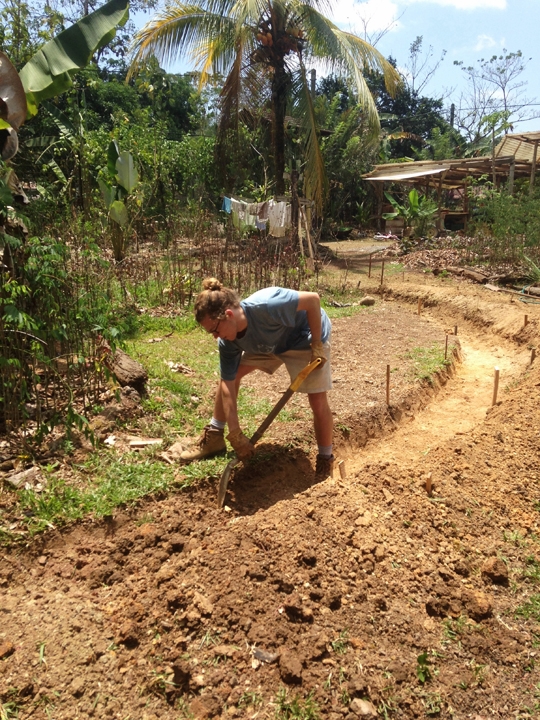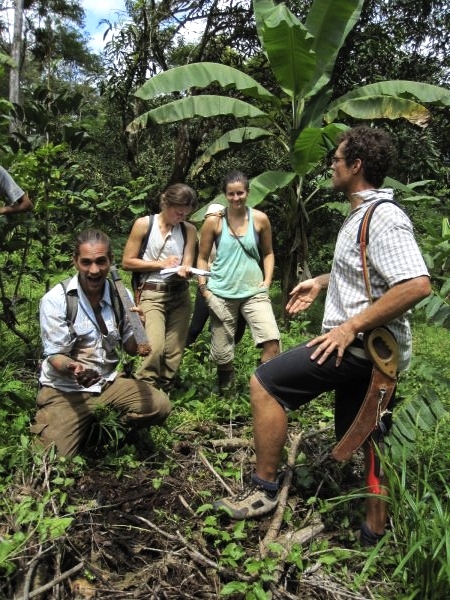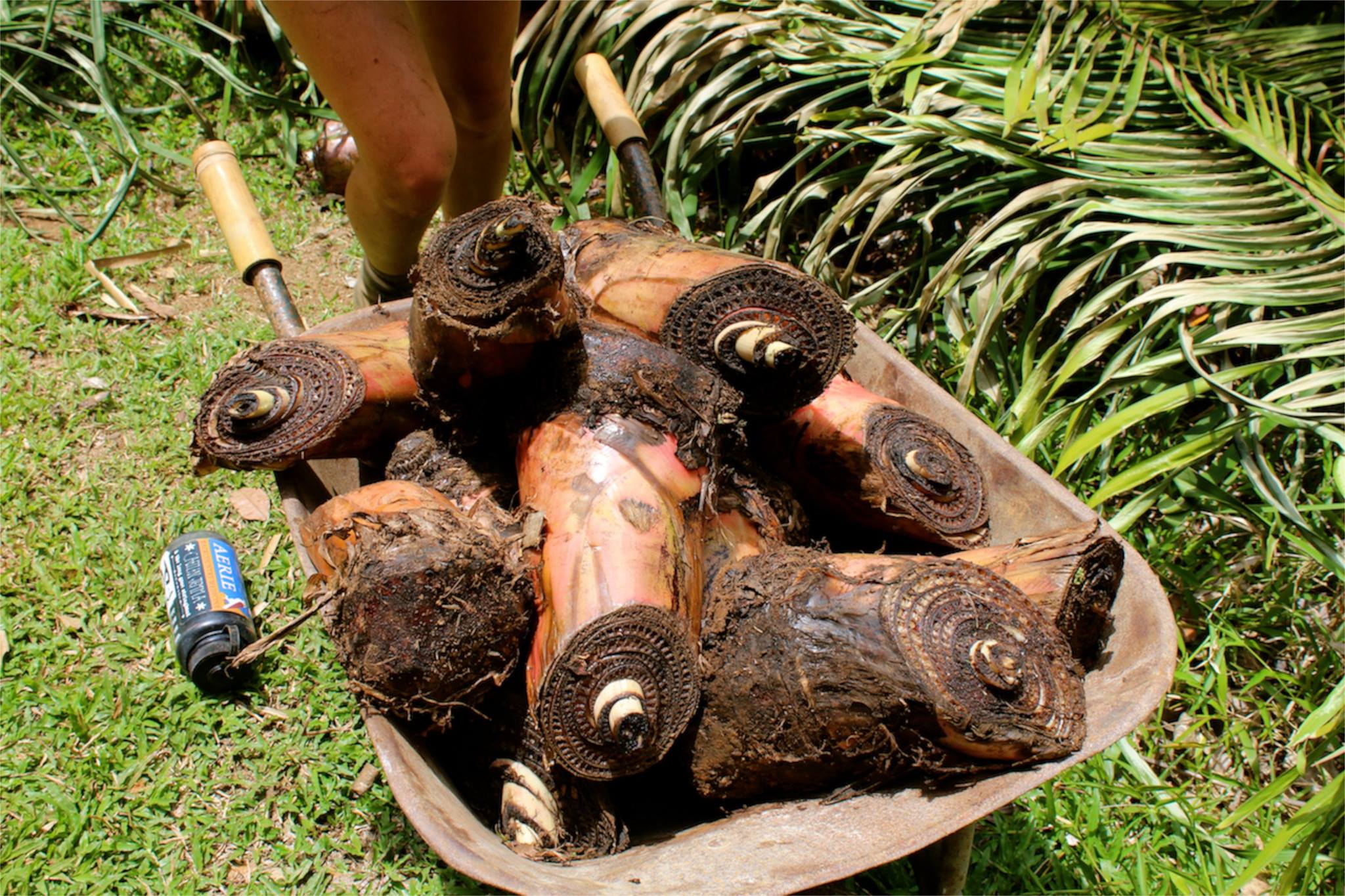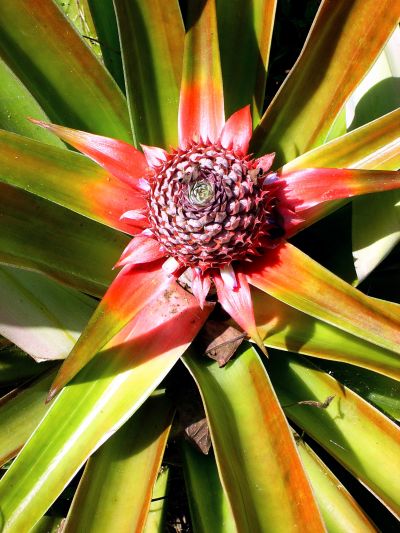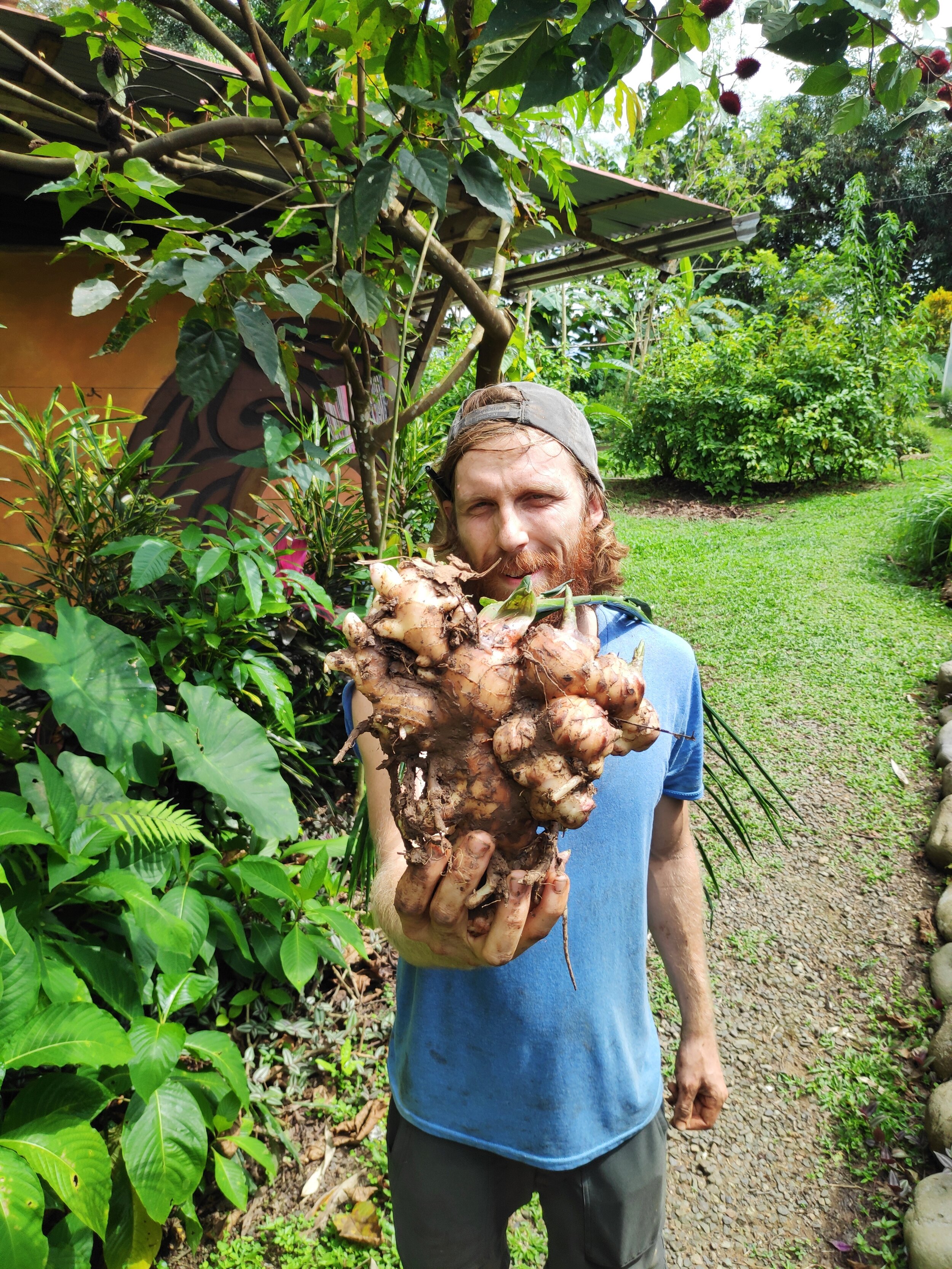What is Permaculture Design?
Check out Workshops page for upcoming Permaculture workshops. Permaculture design is a methodology that aims to create stable and productive systems that provide for human needs while harmoniously integrating the land with its inhabitants. Although originally focused on creating sustainable agricultural systems, permaculture is now used for designing human systems of economy, social organization, urban environments and more. When looking at land-based systems, designers need to take into consideration the ecological processes and nutrient cycles of plants, animals and microbes, climatic factors and weather cycles. Inhabitants’ needs are provided for by using proven technologies to grow food, produce energy, and build shelter and infrastructure. Elements in a system are viewed in relationship to other elements, where the outputs of one element become the inputs of another. This is sometimes referred to as a closed-loop system. A classic example of this is composting human waste and kitchen scraps. The finished products from these processes get applied as fertilizer to food crops, which then produce food that we eat, that then create more organic materials for your compost systems, and the cycle continues round and round.
Composted human waste is a great fertilizer for fruit trees!
Permaculture design is based on a set of ethics and principles that help guide the designer to consider all elements when designing a system. Whenever we create a new system, design is taking place, whether intentionally or not. As good permaculture designers, we have the opportunity to design and create systems that minimize work, look at wastes as resources, and maximize productivity and yields while regenerating environments (read here about the art of stacking functions).
Permaculture ethics and principles can be applied to any environment, at any scale, from dense urban settlements to individual homes, from farms to entire regions. To read more about permaculture principles and some examples of how we apply them at the Ranch go here.
Permaculture Design Certification (PDC)
At Rancho Mastatal we have been practicing permaculture design for over 20 years. We’ve made many mistakes along the way, especially in the beginning. Over the years we have become much better at considering all of the different elements that interact within systems and how to appropriately design them so that they reach their full potential and function. As a novice permaculture designer it can be difficult to comprehend or even predict the outcomes of some of your designs. We encourage people to learn from our mistakes and also from our successes. Since 2005 we have been teaching the Permaculture Design Certification (PDC) here at our site in an effort to pass on the basic design principles, their practical applications and our experience implementing them.
Design practice during our PDC is an important component
This course was originally developed as an intensive multi-week training to disseminate Bill Mollison’s knowledge and ideas. The goal of the PDC is to train individuals in a core set of universal design principles and accompanying methodologies, which can be taken and applied in any setting to create and build increasingly effective sustainable and regenerative systems. Since the 1970s, when the original ideas of permaculture were first being conceived, research has increased and technologies have been improved by a growing community of practitioners and advocates. Our PDC encompasses some of the most up-to-date information on the creation of these sustainable and regenerative systems. Our class draws on work by soil scientists, architects, landscape designers, farmers and other professionals in all of the relevant areas. We believe our PDC brings a wonderful balance of our decades of experience of creating a land based community and a successful business, mixed in with ample doses of realism, inspiration and a plethora of ideas and resources to get you started down this exciting new path.
Permaculture in Practice
We teach more specific workshops in many different areas that fall under the wide umbrella of permaculture. For the latest workshop offerings please see our workshops page. We believe in the importance of not just talking about theoretical ideas in our workshops, but actually practicing them. On our campus and farm, it is important to us that we practice what we teach. And in many cases this practice has been taking place for decades. We have acquired a huge amount of personal experience, which we are happy to share with anyone and everyone. We will make a considerable effort to not just outline the wider patterns and context, but also to give specific working examples that we use and apply every day. This gives participants in our workshops the overall knowledge of how to apply something in a different context, but also the hands on experience of doing it on our land.
Sole with another great harvest of Rambutans, one of many delicious species in our food forests
Permaculture Ethics
There are four main ethics in Permaculture that help us frame our thinking and decision making:
Care of the Land – this is first as it is the most important. After all we only have one planet earth and if we make it uninhabitable then we will be the big losers!
Care of the People – this is second as essentially we are interested in creating healthy environments for us to thrive in too.
Return of Surplus – this is important as often greed and the hoarding of resources causes a shortage for other people. It is important that we redistribute what we have in abundance so that we can all thrive!
Transition Ethic – not everyone is at the same place in their lives and it is important to meet them where they are at if you are going to successfully communicate and cooperate.
Rancho Mastatal as a model for Permaculture Ethics
We practice and live the ethics of Permaculture. We believe that it is important to demonstrate how these can be achieved to create a viable ethical business, a thriving community and a regenerative land based project.
Looking over the wildlife refuge which was once cattle pasture
CARE of the Land
Since the inception of Rancho Mastatal, responsible stewardship of the land has been one of our main goals. Soon after Tim and Robin initially purchased the property, the vast majority of the purchased land was set aside as a private wildlife refuge in cooperation with MINAE (the Costa Rican ministry of environment). Over 200 acres, which was once deforested, is now beautiful secondary forest that protects wildlife and water, sinks carbon into the soil, and provides opportunities for small scale ecotourism. Other parts of the property that were once cattle pasture were reforested and regenerated with the cooperation of MINAE and FONAFIFO. We use a small percentage of the total land for our natural buildings and agroforestry food systems. All of the infrastructure that we have built prioritizes the use of natural materials such as earth, bamboo and timber. For more information about our natural building goals, please go here. We responsibly manage all of our waste on site. We do this mainly through the use of composting toilets, but also through the use of a biodigestor, which not only breaks down harmful pathogens through anaerobic decomposition, but also produces methane which we use for cooking. This minimizes the use of propane for our cooking, an imported fossil fuel. We also can count on one of our many fuel-efficient stoves. These include a 2-burner adobe rocket stove, an earthen Lorena stove, a cob pizza oven, three ACE rocket stoves and solar ovens. To read more about our quest to limit our propane use read this.
One of our fuel efficient rocket stoves
Care of the People
Mastatal is a small rural community of just over 100 people. The Ranch’s integration and relationship with the small community has been a high priority from the day we arrived. Our primary focus has always been to support local farmers, and over 90% of our calories are sourced from within a 15-mile radius of Mastatal (read here about why eating local is important). Several local entrepreneurs have also emulated our ecotourism model. We are delighted to send our guests and visitors to a locally owned farm for a chocolate tour or medicinal plant walk with KIS. Over the years we have supported local people by offering interest-free loans, acting as the default local health clinic, financing subsidized spay and neuter clinics for local pets, and maintaining and investing in local public facilities such as the high school, elementary school, soccer field, and community center. Inside our gates, we have prioritized the health and well being of all of our community members. We are inclusive and transparent in our decision making, hold regular meetings such as one-on-ones and check-ins to disseminate information effectively, and give everyone opportunities to work through any conflicts that are taking place. We provide training on conflict resolution and Non-Violent Communication. We integrate ideas of Sociocracy and cross-cultural dialogue to make sure that everyone is included and heard. We have created a sustainable business model that is run as a cooperative with all profits shared equally amongst the core team.
When living on a farm something is always in season and abundant!
Return of Surplus
Although the core team shares equally in the profits of the Ranch, the business has not been wildly successful by modern economic standards. Over the last many years, on average, the core team has made an annual salary similar to that of our local workers. We have always prioritized our quality of life and the support of local people over making more money. We also choose to invest our money in activities that we believe in, for example, offering subsidized learning through a scholarship program that provides reduced-tuition opportunities for many of our programs for local people who cannot afford to pay the regular rate. The Ranch core team and apprentice team share many modern conveniences rather than each of us having our own car, washing machine, kitchen, fridge etc. We also spend a lot of pro-bono time sharing our experience and passing on our knowledge to our year-long apprentices, guests, workshops participants, school groups, and other visitors.
Transition ethic
Rancho Mastatal is a model of transition. From an abandoned farm with limited financing and experience in the tropics in 2001 to a full-blown education center, farm and lodge today, the Ranch has gone through a host of social, environmental, agricultural and financial transitions. We have always tried to meet people where they are at. We have developed a wide array of educational programs of varying lengths that are aimed at a range of ages and nationalities. Many of our programs are offered in either Spanish or English. The land at Rancho Mastatal continues to undergo a transition to increased diversity, fertility and productivity. Tim and Robin’s transition from newly arrived ex-patriots to fully immersed Costa Rican citizens has included considerable time spent contributing to local politics, education, sports and community development projects. These transitions are informed by an ever-changing reality that requires close scrutiny and openness to feedback from the community, land and visitors.
An apprentice creating a beautiful clay carving
How to apply Permaculture in your life?
People often get confused or overwhelmed when trying to apply permaculture to their lives, believing that they must recreate what has succeeded elsewhere. While this isn’t always a terrible idea, it is worth remembering that every situation is going to be different and what worked in one climate, budget, culture, or country, may not work in another. It is therefore important that we always go back to the overarching principals that are guiding our decision making process. You wouldn’t believe the number of times people say to us, “Oh your composting toilets are great, but we can’t use composting toilets where we are because we don’t have sawdust, or a big enough backyard, or permits.” It is important that we begin to tackle problems with a solutions-based mindset rather than trying to justify why something can’t be done. The permaculture principles that are guiding our decision to use composting toilets are the same principles that can be used to decide whether to:
1. Start composting your food scraps and other biodegradable materials at home
2. Start a worm farm to consume your waste scraps
3. Collect food scraps from your neighbors, friends, local restaurants, large events etc and create compost for your garden, a community garden, or your house plants
4. Use the couch that your next door neighbor has put out on the street because they bought a new one, rather than going to IKEA to equip your new apartment with another
5. Learn how to repair you tools, equipment, etc. rather than throwing them out and buying new ones
6. Use grey water from your sink or washing machine to water the garden, lawn, or house plants
7. Get “new” clothes from friends or family who don’t want them or from a thrift store, rather than buying them new
So let’s not get caught up in the details but rather look at the overall patterns that we can begin to identify and therefore create solutions for.
One of the groups presenting their final design project in our PDC
Permaculture in the Tropics
We have been living and working in a tropical climate since 2001. How we learned to design and implement our systems is based on not only our climate, but also our experiences, resources, labor force and goals, amongst others.
Dendrocalymus asper, one of the many species of bamboo on the property, good for eating and building!
People often think, for example, that one of our objectives is to be self-sufficient. That could not be further from the truth. While we truly believe in the idea of being a producer rather than a consumer and acquiring knowledge of skill sets and practices that allow us to provide for ourselves, we are much more interested in creating wider community resilience. To do that, we need to support and be supported by our local community, engage with them, and help the Mastatal community and the Ranch community develop together. So while we manage large tropical orchards (read here for how to design and create a food forest) that provide us with many delicious tropical fruits and spices, like Snake fruit, Vanilla, Cacao, Black Pepper and more, we still buy plenty of food from our local farmers (read here about eating local).
Our fertility-poor and acidic tropical soils need plenty of love and attention (read here about how to improve tropical soils and some handy tips for working with tropical soils). The sun is intense and hot in the dry season and the rain relentless and unforgiving in the rainy season (read here for vegetable and greens that do well in the rainy season). To grow food successfully here requires well thought out agroforestry practices and a solid design process (read here for tips on starting a tropical homestead)!
Building with earth and making fuel efficient stoves
While we compost all our human waste in our biodigestor or one of our many composting toilets and our kitchen waste in a Zone 1 composting system, we are still connected to the grid for electricity and to the community water supply for drinking water. We are fortunate to live in Costa Rica where 98% of the grid’s electricity is renewable (principally hydro-electric). That doesn’t mean that we don’t try to limit our use of these precious resources through the use of solar hot water, efficient wood burning cook stoves like the ACE, or the simple yet amazing Wonderbag, a highly insulative container to keep food hot and for slow cooking. We have also built or installed biodigestors, rocket stoves, solar cookers and solar panels in the wider community of Mastatal. We reuse all of our grey water to feed our orchards and have an extensive network of swales, dead barriers and contour plantings to “slow, spread and sink” the abundance of water that we get in the rainy season. We ferment a lot too! This is a great natural way to preserve food (so it doesn’t need refrigeration). Some of our favorite recipes can be found in our new cookbook. We also make our own sodas, ginger beer, hooch (homemade alcohol), vinegar & dairy kefir, kimchi, pickles, hot sauces and so much more. Designing and building our own structures is another one of our primary activities. We have been teaching and building using natural materials for over two decades.
Aging our homemade vinegars in recycled glass bottles
Designing and building a house in the tropics is different from doing so in a temperate climate (read here about our design ideas for a sustainable home in the tropics). So, as is always the case, make sure that you understand your climate and especially the specifics of your site. At first we brought outside instructors in to collaborate and learn from. They helped us develop our skills and over time we adapted them to our environment (read here about timber framing in the tropics and here for some hints and tips on how to timber frame). We oftentimes use lime plasters to help protect the earthen walls in our harsh climate, and when we decide on a clay finish, we love to add some artistic flair using clay carvings. We now have some of the best examples of natural building around. You will love the Tadelakt shower at Bernies (read how we built it). Many of our houses have earthen floors (read how to make an earthen floor) that feel wonderful under your feet. Each year we run a natural building workshop where we try and include as many of these techniques as possible and opportuntites to practice them.
A PDC graduating class!
We have been receiving educational groups, guests and apprentices here for many years and our communal lives are intertwined with our business, personal lives, relationships, families, recreational activities, social groups etc. To make sure that everyone is staying healthy and mentally fresh we have created many invisible structures around the Ranch to help facilitate this process. They are constantly being fine-tuned and adapted to meet all of the community members’ needs (read more at Infrastructure: How We Build Our Lives Together). These small details are often the fine line between success and failure as 80% of communities (figure based on Creating a Life Together by Diane Leafe Christian) fail due to poor or non-existent invisible structures and agreements that clearly outline expectations, benefits, conflict resolution procedures, etc.
We look forward to getting to know you better and sharing our experiences with you during our apprenticeship, internship, workshops or day workshops!!!
Today we work with a large network of practitioners, farms, nurseries, and homesteaders around Costa Rica to source materials, create markets, share ideas, and build community. Many of those projects have been compiled in through the Costa Rica Farm Network google map.
Permaculture Consulting Services
Former Ranch Farm Manager, Scott Gallant, is the founder of Porvenir Design, a landscape design firm specializing in whole site master planning for farms, communities, hotels, and homesteads. For more information about these services, please click below.
